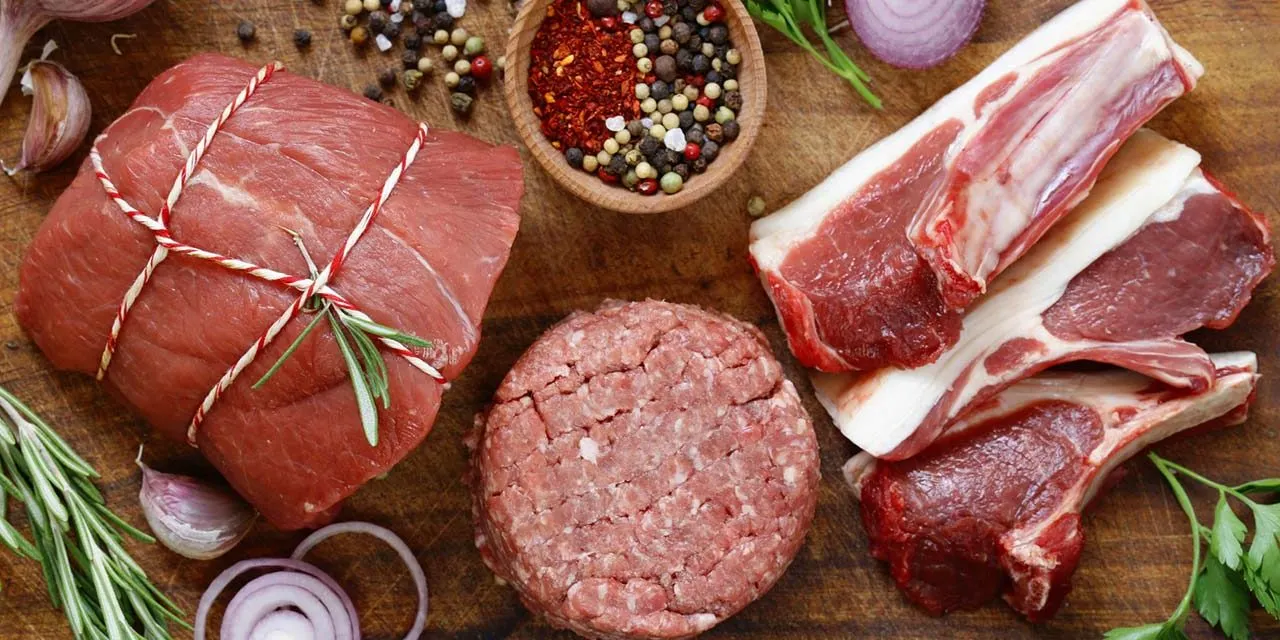Does Organic Meat Have A Lower Cancer Risk?

According to studies on the carcinogenic risks linked with the consumption of different meats, the estimated risk was so significant that you might not want to feed on pork, beef, or chicken.
Most of the studies conducted in Europe present lamb contamination problem. While in the US, most issues were observed with toxins in chickens.
Research indicates that US chickens are about ten to twenty times more contaminated than samples obtained from other nations that were tested.
Our main objective today is to establish whether or not organic meat is less carcinogenic. You never know, you might be killing yourself slowly!
Processed Meat vs. Grass-Fed (Including Organic) Meat
We believe you will have a better understanding if you can successfully single out the ins and outs of both processed and grass-fed meat.
Firstly, processed meat might contain dioxins and polychlorinated biphenyls (PCBs), which are industrial byproducts that have mostly been banned, and may contribute to neurological and cancer problems.
Dioxins and PCBs are the outcomes of industrial processes, such as pesticide production. Therefore, grass-fed/organic meat contains less of such toxins.
Organic meat tends to be leaner than processed meats, which can make it less carcinogenic.
The kinds of chemicals created when the amino acids in meat are exposed to high temperature are claimed to be carcinogenic.
Therefore, the leaner the meat, the less likely you will be subjected to such risks.
Does Meat Cause Cancer?
The answer is a contradicting one, “yes and no,” but we will explain.
Processed meats have been linked to cancer, while grass-fed/organic meats have not.
Because processed and grass-fed meats are similar, sometimes you may think they are the same and use them similarly.
That would be an incorrect assumption because grass-fed meat has never been proven to cause cancer. However, processed meats, especially when they contain nitrates, have been associated with cancer. So, you never want to consume any meat that contains nitrates.
Processed meats may contain dextrose, which is a synthetic sugar. When you add sugar to meat, you spike insulin way too high.
Then there is GMO corn that is present in meat. Research indicates that ninety percent of all GMO products sold in America are fed to animals.
So, you are getting a lot of GMO corn when you eat meat, which has been associated with studies that show that it triggers tumors and certain cancers long-term.
Meat processors also use formaldehyde in the chicken feed to bind it to and kill salmonella? It is incredible. Chickens have been exposed to formaldehyde; the same chemical used to embalm corpses.
As you can see, processed/conventional meats are associated with more than one cancer triggers. So, it is worth to stick with grass-fed/organic meat, which can sometimes be expensive.
Is Organic Meat Completely Free of Carcinogens?
When compared to processed/conventional meat, grass-fed seems to be the best option for your health, especially if you want to avoid cancer triggers.
However, organic meat is not necessarily 100% grass-fed meat. According to the standards set by USDA for organic beef, the animals must not have antibiotics or hormones administered to them.
The animals must not be confined indoors, and they should have access to vegetarian, organic feed.
The organic feed may include grains (not part of the natural diet).
While this proves that organic meat is not 100% grass-fed meat, we generally categorize all healthy meats as grass-fed, including organic and hormone-free meats.
But some recent studies indicate that consumption of grass-fed or organic meat does not entirely eradicate the carcinogenic potential linked to persistent organic pollutants (POPs) intake.
What about Chickens?
Chicken seems to be the preferred alternative to conventional meats by most people who cannot probably afford organic meat.
However, chickens are not free of danger. One of the most significant issues in the US is chickens that are contaminated with arsenic.
According to FDA reports (2011), non-organic chicken samples were found to contain inorganic arsenic. However, the reports are region specific.
About four years later, the FDA reported that a higher percentage (70%) of the chicken in the US market were contaminated with arsenic.
Arsenic refers to a natural element that is added to animal feeds to bring out desirable characteristics.
Long-term exposure to this natural element has been associated with several health concerns, including cancer, heart disease, infant cognitive defects, and type 2 diabetes.
If you were to eat chicken, you should consider chickens that are raised naturally without any exposure to chemicals, such as arsenic.
The Biggest Reasons You Should Eat Organic Meet and not Conventional Ones
#1 Higher Levels of Omega-3
The primary role of meat for most of us should be as a source of omega-3, not as a source of protein.
Typically, you get more omega-3 from organic meat of grass-fed animals. Research indicates that grain-fed cows have lower levels of omega-3.
The omega-3 found in healthy organic meat is vital in the fight against cancer. It helps to regulate genetic function, the heart, and the blood.
#2 Higher in CLA
Meat from grass-fed cows is a rich source of CLA (conjugated linoleic acid). When cows are raised on fresh pasture alone, their meat contains from three to five times more CLA than meat obtained from conventionally fed animals.
CLA may be one of the most resourceful defenses in the fight against cancer. Studies indicated that even a small percentage of CLA significantly reduced tumor growth.
More studies indicated that CLA might significantly reduce cancer risk in humans. It is believed that women who switch from grain-fed to grass-fed meat place them in the lowest risk category.
#3 Organic Meat and Vitamin E
Research suggests that meat from pastured animals is four times higher in vitamin E compared to meat from conventionally fed animals.
In humans, vitamin E is associated with a lower risk of heart disease and cancer. Researchers also state that vitamin E may have powerful anti-aging qualities.
#4 More Potent Carotenoids
Grass-fed meat contains more potent carotenoids, which have beta-carotene and lutein. Both of these compounds are converted to antioxidants to help fight heart disease and cancer.
#5 Low in Saturated Fats
The typical saturated fats contained in meat are myristic, palmitic, and stearic acids. It is the first two fats that raise flags when it comes to maintaining proper cholesterol levels.
Studies suggest that grass-fed animal produce meat that has less myristic and palmitic acids compared to meat obtained from grain-fed animals.
In Summary
Even though some studies indicate that organic meat does not eliminate the potential of carcinogenic risks, organic meat is by far the ideal choice.
It is free of antibiotics, added growth hormones, as well as pesticides. Unlike their conventional counterparts, the animals used for organic meat are raised naturally.
Chemicals present in animal feed can end up in conventional meat, eggs, or dairy. That is why certain foods should be eaten in organic form.
Even though organic meat is claimed to be less carcinogenic, you should always remind yourself that moderation is essential.
Find healthier ways of consuming meat. For example, you can pair organic meat with whole foods that are nutrient rich.
